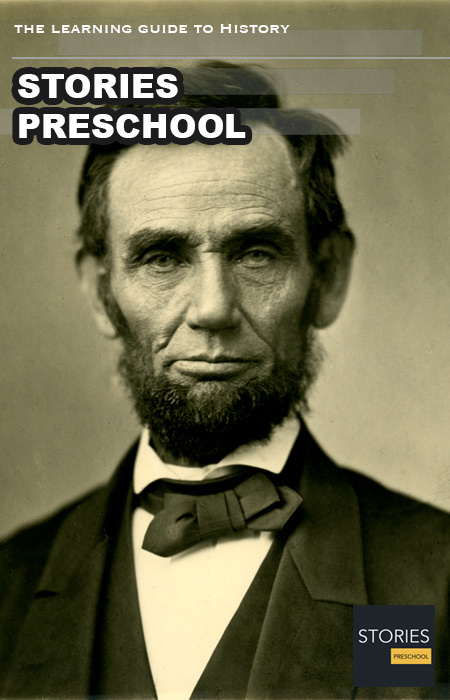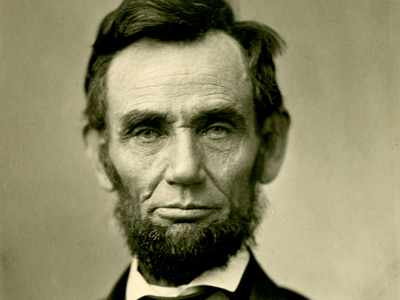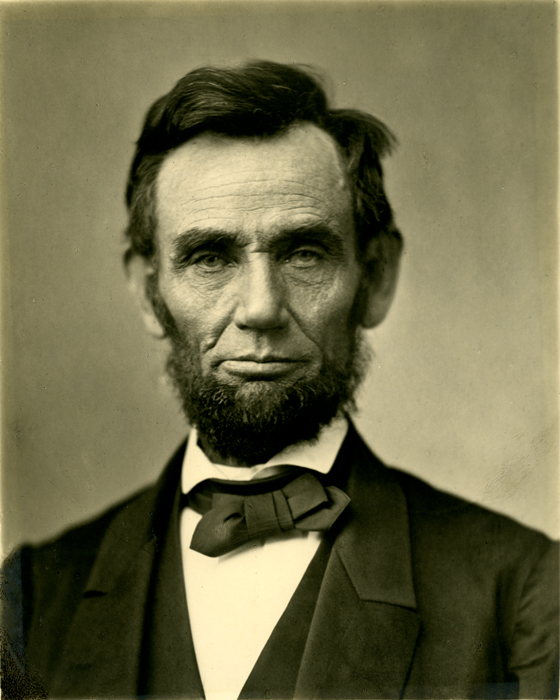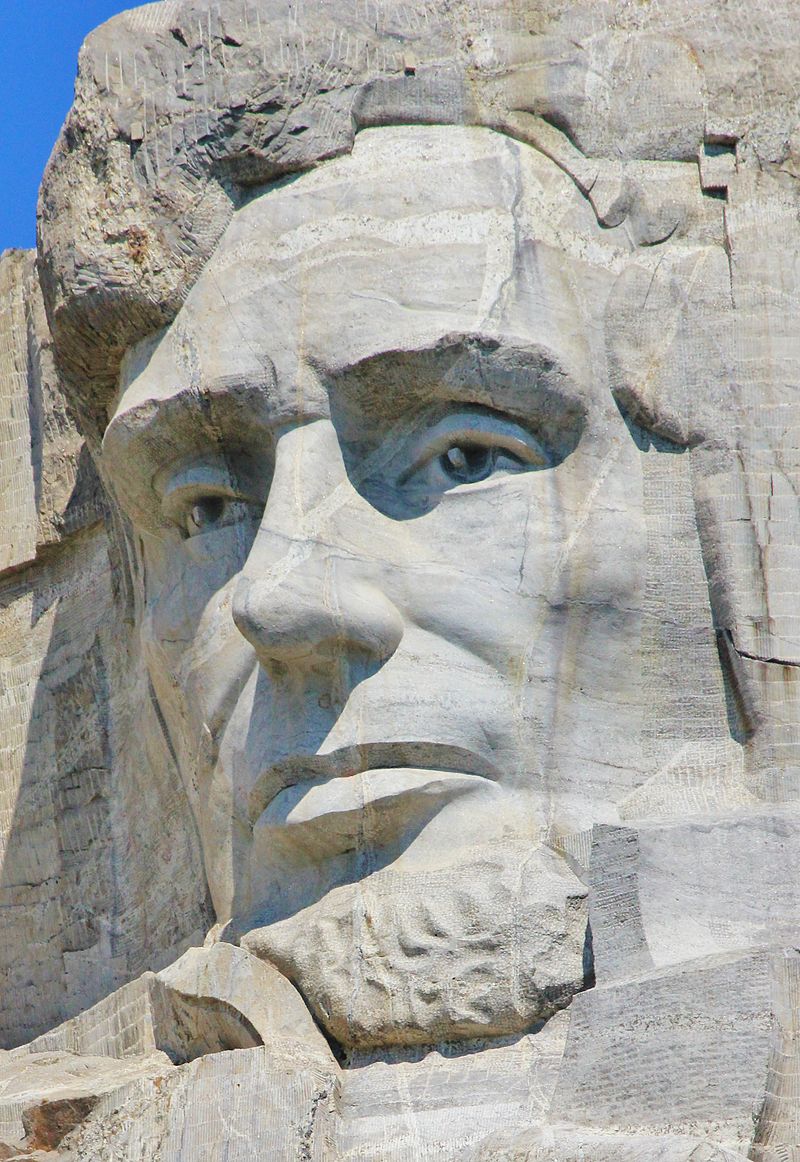Abraham Lincoln (1809-1865)
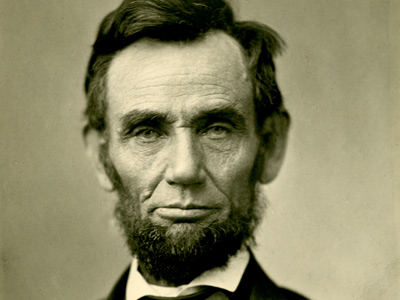
Abraham Lincoln was an American politician and lawyer who served as the 16th President of the United States from March 1861 until his assassination in April 1865. Lincoln led the United States through its Civil War—its bloodiest war and perhaps its greatest moral, constitutional, and political crisis. In doing so, he preserved the Union, paved the way to the abolition of slavery, strengthened the federal government, and modernized the economy.
Born in Hodgenville, Kentucky United States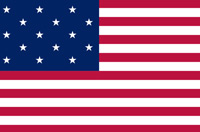 The United States of America (U.S.A. or USA), commonly known as the United States (U.S. or US) or America, is a country in North America. It is the world's third-largest country by both land and total area. The United States shares land borders with Canada to its north and with Mexico to its south. The national capital is Washington, DC, and the most populous city and financial center is New York City., Lincoln grew up on the western frontier in Kentucky and Indiana. Largely self-educated, he became a lawyer in Illinois, a Whig Party leader, and was elected to the Illinois House of Representatives, in which he served for eight years. Elected to the United States House of Representatives in 1846, Lincoln promoted rapid modernization of the economy and opposed the Mexican–American War. After a single term, he returned to Illinois and resumed his successful law practice. Reentering politics in 1854, he became a leader in building the new Republican Party, which had a statewide majority in Illinois. In 1858, while taking part in a series of highly publicized debates with his opponent and rival, Democrat Stephen A. Douglas, Lincoln spoke out against the expansion of slavery, but lost the U.S. Senate race to Douglas. In 1860, Lincoln secured the Republican Party presidential nomination as a moderate from a swing state, though most delegates originally favored other candidates. Though he gained very little support in the slaveholding states of the South, he swept the North and was elected president in 1860.
The United States of America (U.S.A. or USA), commonly known as the United States (U.S. or US) or America, is a country in North America. It is the world's third-largest country by both land and total area. The United States shares land borders with Canada to its north and with Mexico to its south. The national capital is Washington, DC, and the most populous city and financial center is New York City., Lincoln grew up on the western frontier in Kentucky and Indiana. Largely self-educated, he became a lawyer in Illinois, a Whig Party leader, and was elected to the Illinois House of Representatives, in which he served for eight years. Elected to the United States House of Representatives in 1846, Lincoln promoted rapid modernization of the economy and opposed the Mexican–American War. After a single term, he returned to Illinois and resumed his successful law practice. Reentering politics in 1854, he became a leader in building the new Republican Party, which had a statewide majority in Illinois. In 1858, while taking part in a series of highly publicized debates with his opponent and rival, Democrat Stephen A. Douglas, Lincoln spoke out against the expansion of slavery, but lost the U.S. Senate race to Douglas. In 1860, Lincoln secured the Republican Party presidential nomination as a moderate from a swing state, though most delegates originally favored other candidates. Though he gained very little support in the slaveholding states of the South, he swept the North and was elected president in 1860.
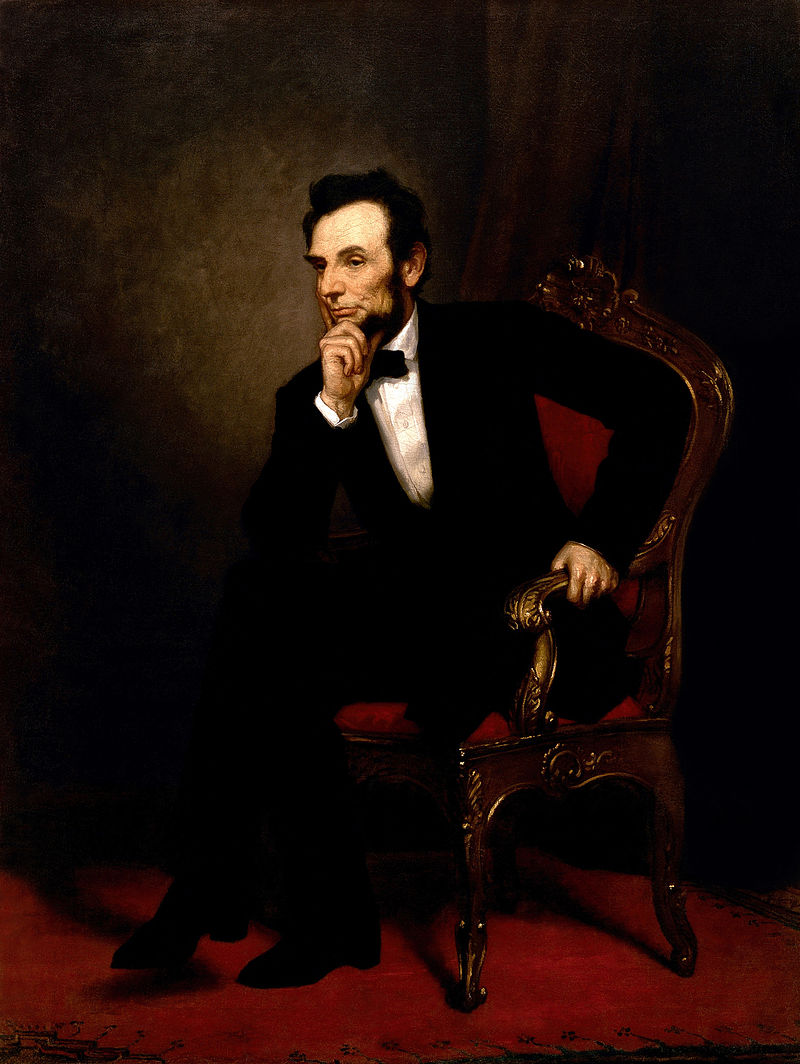
Abraham Lincoln, painting by George Peter Alexander Healy in 1869
Lincoln's victory prompted seven southern slave states to form the Confederate States of America before he moved into the White House—no compromise or reconciliation was found. A Confederate attack on Fort Sumter inspired the North to enthusiastically rally behind the Union. As the leader of the moderate faction of the Republican Party, Lincoln confronted Radical Republicans, who demanded harsher treatment of the South, War Democrats, who called for more compromise, anti-war Democrats (called Copperheads), who despised him, and irreconcilable secessionists, who plotted his assassination. Lincoln fought back by pitting his opponents against each other, by carefully planned political patronage, and by appealing to the American people with his powers of oratory. His Gettysburg Address became an iconic endorsement of nationalism, republicanism, equal rights, liberty, and democracy. Lincoln concentrated on the military and political dimensions of the war in order to reunite the nation. He suspended habeas corpus, leading to the controversial ex parte Merryman decision, and he averted potential British intervention by defusing the Trent Affair. Lincoln closely supervised the war effort, especially the selection of generals, including his most successful general, Ulysses S. Grant. He made major decisions on Union war strategy, including a naval blockade that shut down the South's trade. As the war progressed, his complex moves toward ending slavery included the Emancipation Proclamation of 1863; Lincoln used the U.S. Army to protect escaped slaves, encouraged the border states to outlaw slavery, and pushed through Congress the Thirteenth Amendment to the United States Constitution, which permanently outlawed slavery.
An astute politician deeply involved with power issues in each state, Lincoln reached out to the War Democrats and managed his own re-election campaign in the 1864 presidential election. Anticipating the war's conclusion, Lincoln pushed a moderate view of Reconstruction, seeking to reunite the nation speedily through a policy of generous reconciliation in the face of lingering and bitter divisiveness. On April 14, 1865, five days after the surrender of Confederate general Robert E. Lee, Lincoln was assassinated by Confederate sympathizer John Wilkes Booth and died the next day. Lincoln has been consistently ranked both by scholars and the public as among the greatest U.S. presidents.
HISTORY
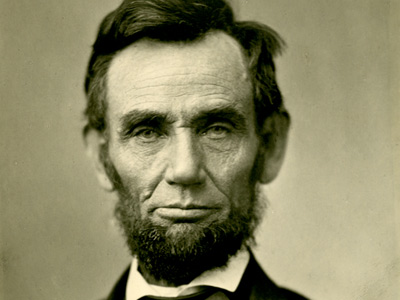
RESOURCES
This article uses material from the Wikipedia article "Abraham Lincoln", which is released under the Creative Commons Attribution-Share-Alike License 3.0.
© Stories Preschool. All Rights Reserved.
